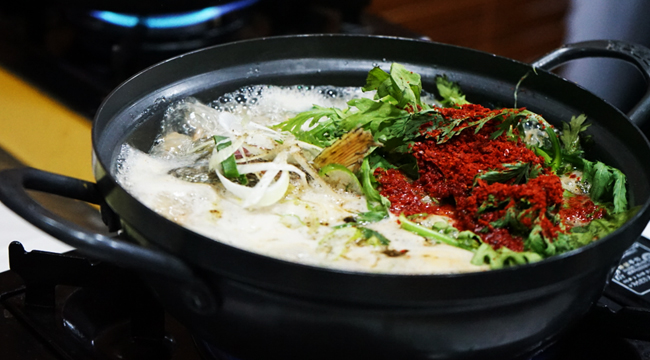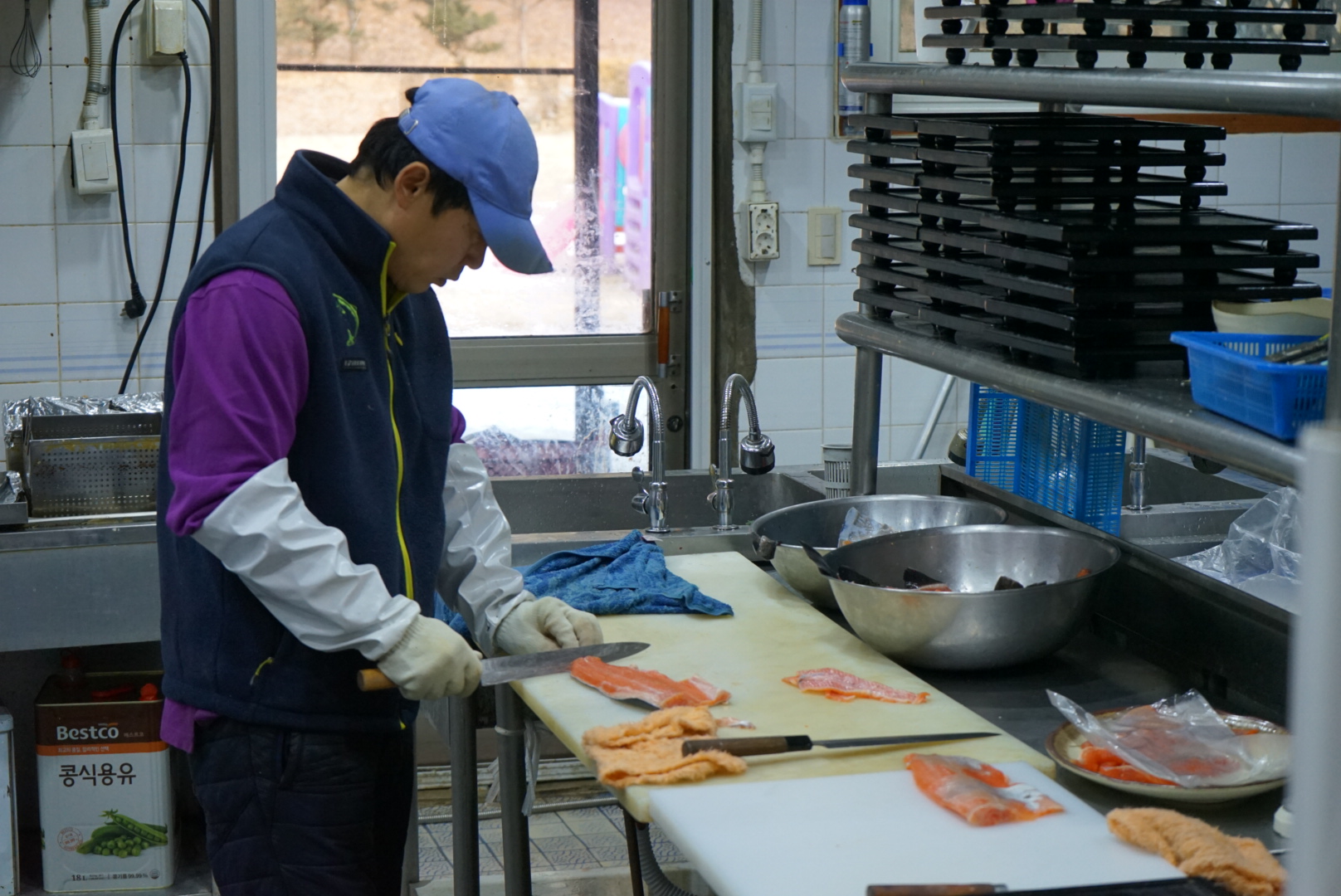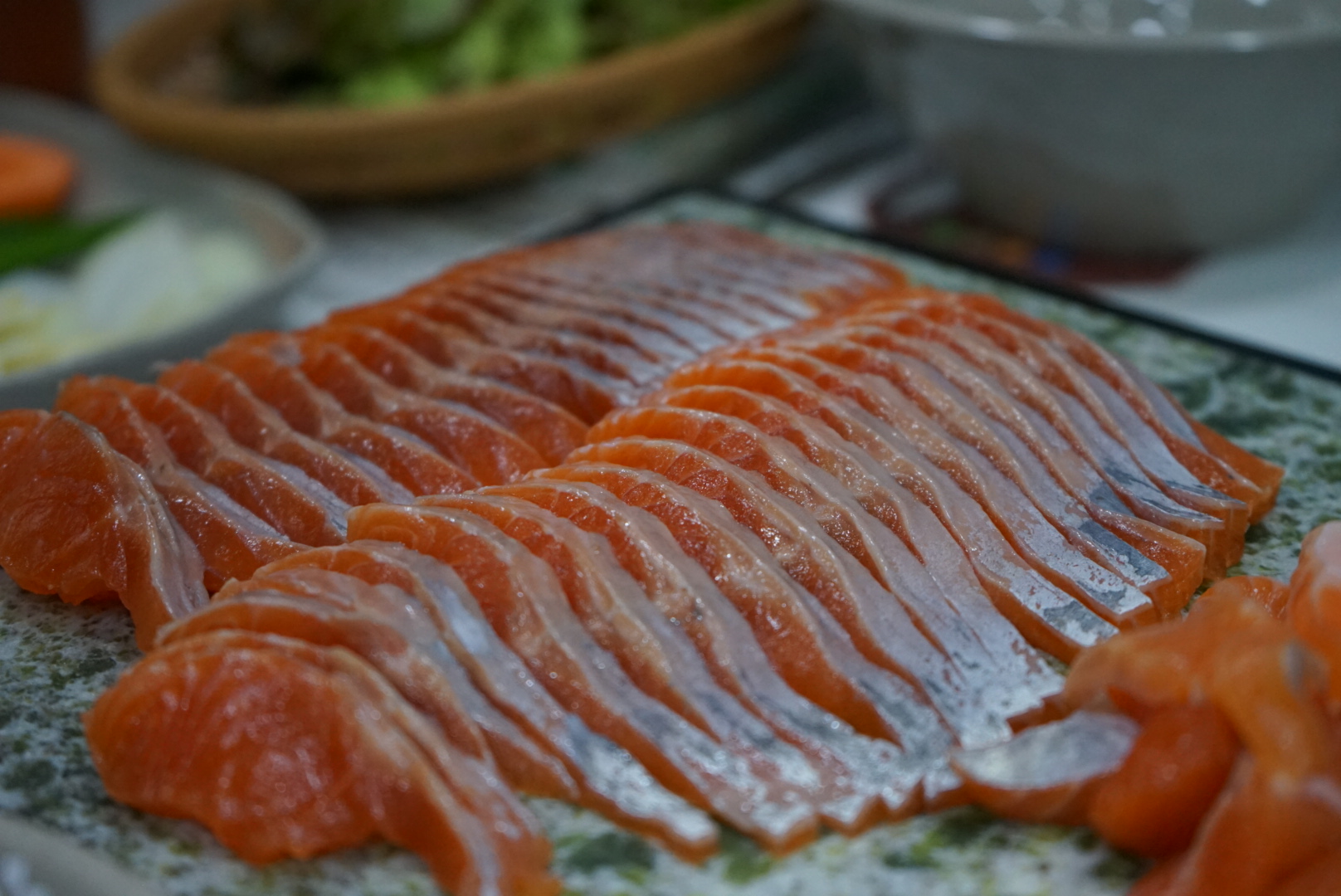
For a country with an unmatched (and much-imitated) food culture, Korea’s Olympic organizers didn’t exactly outdo themselves in culinary offerings at the Pyeongchang Olympic Games. At several events, the slighty-more-elevated “K-Food”— mostly serviceable steamed dumplings and the like — sold out quickly, leaving spectators too choose between far less-inspired Western food options like hot dogs and chips. While covering the Games last week, I had more than one meal consisting entirely of Pringles and bottled water — something of a slight when one thinks of the far better fare available just beyond the official Games facilities.
Fortunately for those traversing Pyeongchang for the Games, what is arguably the best restaurant in the region—and one of the more unique dining experiences in the country—is tucked away in the hills just a short drive from the so-called “Mountain Cluster,” where many of the downhill events took place. Less a conventional restaurant and more a freshwater trout farm that happens to serve up freshly-harvested fish to order, the simply named Songeoeuijip—or, roughly, Trout House—is known throughout Korea for raising and serving what many consider the best, most elegant trout in the country.
“It’s a very unique thing, a regional thing,” says Daniel Gray, a Seoul-based food expert, guide, and blogger (you might remember him tossing back copious amounts of soju with Anthony Bourdain in the latter’s “Parts Unknown” episode on Seoul). The high altitude and cold waters of Pyeongchang make the region well-suited to farming freshwater trout, something of a delicacy in a peninsular nation awash in saltwater seafood. Bo Yeon Chung, the farm’s second-generation proprietor, remains focused on raising Korea’s most flavorful fish in the aquaculture pens located just outside the restaurant’s front door. That means the fish coming out of the water travel just a few steps to the restaurant kitchen, making it hard to dine any more local—or fresh—than this.
This extreme version of farm-to-table sourcing important to Korean diners, Gray says, as it’s believed to optimize what’s perhaps best described as the flow of energy between the dined-upon and the diner.
“It’s a different approach to sashimi,” he says. “That fish is alive right before it is cut up.”

From the cutting board, the trout progresses to the table in courses. First, in delicate, pink slivers of sashimi, plump, fatty, and shimmering amid a smattering of traditional Korean side dishes. A plate of fried trout dishes arrives next, a presentation rarely offered by other trout-serving restaurants. A bowl of unforgettable trout dumplings appears on the table drowning in a light cream sauce, followed by a traditional fish soup—finished table-side—made from the head, bones, and other trimmings.
Though the sashimi is hands-down the most unique aspect of the Songeoeuijip experience, most Koreans make the drive out for the soup, Gray says. And drive they do. “People drive all day to get here,” he says. “It’s a destination restaurant.”
For those who visited Pyeongchang for the Games—or for those coming after, now that the newly-built KTX train direct from Seoul has made the entire Pyeongchang region much more accessible to travelers—the drive is far shorter, less than an hour from the Mountain Cluster, making it an easy detour. I hitched a ride with a crew from Toyota which—as the major automotive sponsor of the Olympics—had means of transit on hand. But it’s easy enough to rent or hire a car with a little advanced planning.
Cars aside, you will want to plan in advance. Though the trout sashimi comes straight from the water to your plate, Songeoeuijip asks for a 24-hour heads up if you desire that particular preparation. When it hits the table in front of you, you’ll feel absolutely sure it was worth the effort.







